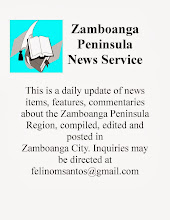ACF Int’l spearheads
3-day WASH training
The training forms part of
the WASH Support to Populations Affected by conflict in Zamboanga City
Participants to the activity
included WASH cluster members and local civic social organizations.
Specifically the 3-day
training aimed to transfer necessary know-how and skills to target
stakeholders where they will take the lead and manage WASH related intervention
and activities during emergency situations; link WASH and disaster risk
reduction as basic rights and service as part of the foundation of safety and
resilience and review the vulnerability context of the Philippines to natural
and human-induced disasters.
The same activity intended to
make participants understand the national policies, guidelines and standards
relating to WASH in emergencies and able to map out existing LGU sectors and
other WASH actors that will manage WASH in emergencies and demonstrate
specific WASH techniques and processes and roles that are applied in an
emergency.
The first two days of the
training was held at the Astoria Hotel while the culminating day was held at
the La Vista del Mar with various activities like demonstration of water
bladder set up and many others.
ACF International (Accion
Contra El Hambre) is an organization that fights hunger at all stages, from its
most extreme manifestation of severe acute malnutrition to its causes. It
intervenes directly in over 40 countries on five different continents and
supports more than 6 million people.
ACF aims to improve access to basic services of less empowered and
more vulnerable populations, including internally displaced persons and
returnees through its main sectors of expertise. It directly supports the
displaced and affected population and the host communities while mainstreaming
cross-cutting issues, such as gender, children, environment, disaster risk
reduction, climate change adaptation and cultural sensitivity. (Sheila Covarrubias)
(081214)







0 comments:
Post a Comment